#ChickenTax
Mercedes-Benz X-Class Pickup Truck Already Dead: Report
The Mercedes-Benz X-Class pickup truck is the company’s attempt to get in on the growing pickup truck market on a global scale. Based on Nissan’s Navarra, it’s a premium mid-sized offering available in select markets that are not the United States.
If the latest reports are true, it’s also a dead product.
Automotive News Europe recently reported that Daimler has killed the truck due to slumping sales. It hasn’t been on the market long, being introduced in 2017. But, with only 16,700 units sold last year in Europe, Australia and South Africa, it wasn’t shaping up to be a winner. While it did do better than the Navarra-based Renault Alaskan, the Navarra itself performed significantly better in sales.
French President Convinced Trump Wants to Kill German Cars; Steel Tariffs Strike U.S. Allies
There’s been quite a bit of the old “he said, she said” as the global trade war between developed nations coalesces. Germany has not covered U.S. President Donald Trump’s trade policy favorably, not that it has much reason to. His new tariffs on imported steel and aluminum has tested relationships with numerous countries and, while it isn’t the biggest exporter of metal to the United States, Germany has something to lose. Likewise, proposed duties on passenger vehicles have sincerely rubbed Deutschland the wrong way.
However, the issue was further complicated this week after a gossipy report surfaced claiming Trump told French President Emmanuel Macron in April that he would continue hampering the European auto manufacturers until there are no Mercedes-Benz vehicles driving in America.
Trade War Watch: U.S. Public to Have a Say on Auto Import Threat
There was a mighty blowback against the Trump administration’s suggestion to elevate tariffs to as much as 25 percent on all foreign-built passenger vehicles.
Already reeling from fresh import fees on aluminum and steel, Europe expressed its collective distaste on new taxes while Japan vowed to plead a strong case for itself. Meanwhile, prominent politicians and two of the largest automotive trade groups in the country came forward to condemn the plan, stating it was “confident that vehicle imports do not pose a national security risk” to the United States.
While the administration has already launched its investigation to determine whether vehicle and auto part importers threaten the industry’s health and ability to develop advanced technologies, the government noted that a second opinion wouldn’t hurt. Announced on Tuesday in the Federal Register, the the Commerce Department will allot two days in July for public comments on the matter.
Trade War Watch: Automakers Respond to U.S. Import Investigation, Japan Keeps the Faith
President Trump announced a security investigation into auto imports last week, tasking Commerce Secretary Wilbur Ross with the job. His goal will be to determine what effects imported vehicles have on the national security of the United States under Section 232 of the Trade Expansion Act of 1962 — which sounds like a monumental and rather complex task.
Basically, Ross will examine whether or not the U.S. can get away with escalating automotive tariffs. That’s a touchy subject, considering how contentious global trade has become in recent months. Worse yet, the 80-year-old commerce secretary will have to continue promoting American businesses and industries outside its borders while deciding on an issue few trade partners will be happy with.
Automakers aren’t thrilled either. After Trump announced the investigation, the Association of Global Automakers and Alliance of Automobile Manufacturers both said they didn’t believe vehicle imports posed a national security risk. “To our knowledge, no one is asking for this protection. If these tariffs are imposed, consumers are going to take a big hit,” said John Bozella, President of Global Automakers, in a statement. “This course of action will undermine the health and competitiveness of the U.S. auto industry.”
Trade War Watch: Trump Launches National Security Investigation On Auto Imports
President Donald Trump issued a tweet promising car manufacturers good tidings on Wednesday. “There will be big news coming soon for our great American Autoworkers,” he said. “After many decades of losing your jobs to other countries, you have waited long enough!”
Later that same day, the administration announced it had launched a national security investigation into car and truck imports under Section 232 of the Trade Expansion Act of 1962. The Commerce Department explained that the probe would investigate whether imported vehicles and parts threaten the domestic industry’s wellbeing, taking into account its ability to develop new technologies and the impact of tariffs.
“There is evidence suggesting that, for decades, imports from abroad have eroded our domestic auto industry,” Commerce Secretary Wilbur Ross said.
U.S., South Korea Reach Trade Deal; No Korean-built Hyundai Pickups in America's Future
The United States and South Korea reached a free trade agreement on Monday that spared the Asian country from punitive steel tariffs, assuming Seoul keeps an eye on just how much steel it sends to American buyers.
A quota on Korean steel exports means the country can only sell 70 percent of its recent average (2015-2017) to the U.S., though it is hardly Korea’s largest export market. The deal, reached “in principle” ahead of both countries’ meetings with North Korean leader Kim Jung UN, will also see South Korea raise the limit for U.S.-made vehicles that needn’t conform to local safety standards from 25,000 to 50,000.
It’s good news for the Trump administration, but not everyone’s thrilled. Hyundai’s union is hopping mad that a steep tariff on Korean-built pickups — which was set to expire in 2021 under the previous agreement — was just renewed for another 20 years.
BMW's Description of the Mercedes-Benz X-Class Pickup Truck Is Decidedly Unkind
“They build fantastic cars,” BMW senior vice president Hendrik von Kuenheim told Australian automotive media at the Frankfurt Motor Show. “But this one was a disappointment.”
von Kuenheim is talking about the Nissan Navara-based Mercedes-Benz X-Class pickup, a truck not presently destined for North America but one that will appear across the region for which von Kuenheim is in charge: Asia, Australia, South Africa.
“I saw that car in Geneva and was actually disappointed,” BMW’s von Kuenheim says. “Very disappointed.” Calling the X-Class “appalling,” and suggesting we “would have expected something more serious,” von Kuenheim’s comments about the body-on-frame Mercedes-Benz pickup accompanied a number of revelations regarding a future BMW truck.
Don’t expect a BMW pickup to rival the Chevrolet Colorado ZR2.
What Not to Say When Introducing New Pickup Truck - Mercedes-Benz X-Class Edition
We don’t know, beyond a shadow of a doubt, exactly what Mercedes-Benz USA has planned for the brand’s new pickup truck, the X-Class.
Importing the Nissan Navara-based Benz pickup seems doubtful. The Chicken Tax, a 25-percent tariff on imported light trucks, would bring a $43,000 X-Class’s price up to $54,000. Moreover, premium brand pickup trucks — Lincoln Blackwood and Mark LT; Cadillac Escalade EXT — have faltered in the past. The X-Class is also set to be almost entirely dependent on diesel engines, and Mercedes-Benz would almost invariably need a gas powerplant to function in North America, both from cost and emissions standpoints. Plus, Mercedes-Benz’s X-Class would be competing for a slice of a slice of America’s pickup truck pie. America’s pickup truck sector is huge, but 84 percent of it is devoted to full-size, not midsize, pickup trucks.
However, if — and it’s a big if — Mercedes-Benz either determines that importing the X-Class to the United States is viable or decides to build the X-Class in the NAFTA zone, the words of Volker Mornhinweg, Mercedes-Benz Vans’ executive vice president, might just come back to haunt the three-pointed star.
Parked In Drive: 1968 Volkswagen Transporter Type II 'Doublecab'
Pickup trucks are a stereotypically American product, right up there with blue jeans and barbeque. The best-selling vehicle in America for the past 35 years? Ford F-Series. And the pickup truck defines our needs as a nation, maximizing towing, luggage, and passenger capacities as much as possible at the lowest possible price.
But must a pickup wear an American badge for us to consider it a proper truck?
After seeing innovative trucks like this 1968 VW Type II Transporter, you can’t help but ask, “Why must these be so rare in America?”
Beef Duty May Join Chicken Tax in the Barnyard, Would Raise Price of Euro Scooters and Motos 100 Percent
Much to the chagrin of a couple of generations of small truck enthusiasts on this side of the Atlantic Ocean, the United States got into a bit of a trade tiff with France and Germany over a protectionist tariff the European countries had placed on imports of American chicken in the early 1960s. The result was a 25-percent tariff levied on potato starch, dextrin, brandy, and light trucks imported into the U.S. Brandy was listed to retaliate against the French while the light truck duty targeted commercial versions of the VW Type II.
Due to another trade dispute over a different foodstuff, in this case beef, the Office of the United States Trade Representative (OUSTR) has proposed a 100% tariff on small to medium displacement motorcycles and scooters manufactured in the European Union. Motorcycles and scooters from 50 to 500 cc displacement were tucked in at the end of a long list of beef, pork, and other food products covered under the proposed duties.
No Fixed Abode: The Perks (And Perils) Of Protectionist Policies
“Like any good capitalist, I firmly believe that automakers need competition to produce their best and most innovative work.” That’s what my colleague and occasional pal Stef Schrader on Jalopnik wrote yesterday, in a column titled Protectionism Is Only Good If You Love Really Terrible Cars. I doubt neither Stef’s sincerity nor her diligence; she hits all the traditional marks in her piece, from Allegro to Trabant, and she does it with style.
I am not a good capitalist. Not any longer.
For most of my life, I was; I’ve been mostly self-employed since I was 19, and I’ve never asked for help from anybody save for three weeks’ worth of unemployment payments in 1995. I always looked at life as a battle that went to the strongest, and I never felt inadequate in the face of the challenge.
Once I became a father, however, I started wondering about my son’s prospects, and the prospects of his contemporaries. What if they didn’t have the strength, or the luck, that I’ve had? Should they be just tossed aside by the global economy, discarded forever just because they couldn’t win a race to the bottom with seven billion other desperate souls?
If the former president of the Miami University Entrepreneurial Society (yes, guilty as charged) can read Adbusters and start worrying about factory conditions around the globe, perhaps that means everything out there is up for grabs. And it’s worth asking the question: Could a new round of protectionist policies, intelligently conceived and applied, change our lives as drivers, consumers, and workers — for the better?
Mercedes-Benz Went to Absurd Lengths to Avoid the 'Chicken Tax'
We have, perhaps unfairly, categorized German automakers as far more calculating and efficient than their American counterparts. While there is certainly a case to be made for this positive stereotyping, there are also plenty of examples calling this perceived Germanic precision into question. One such instance is the absolutely ridiculous lengths Mercedes-Benz have been going to avoid the chicken tax on its imported vans.
Chicken Tax Ready For The Fryer, Hilux Et Al Not Ready For US Market
As key free trade agreements near signing, the chicken tax may soon become a bucket of Kentucky fried goodness. Just don’t hold your breath for a Hilux.
Junkyard Find: 1982 Subaru BRAT
Ah, the Subaru BRAT. Just as you can’t find anyone who hates The Ramones, you can’t find anyone who wants to beat on the Subaru BRAT with a baseball bat. As perhaps the best-loved car that shows up in self-service wrecking yards with any regularity, the BRAT always inspires me to whip out my camera when I see a junked example. So far this series, we’ve admired this ’79, this ’79, this ’84, this ’82, and this Sawzall-ized ’86 crypto-BRAT.
QOTD: Bring Back the Unibody Pickup?
For decades, the formula for a successful pickup design in America has been pretty much the same. Design a simple ladder-frame chassis, drop in the biggest engine you can find, give it a front-engine rear-drive layout with an optional transfer case, and start raking in the money. From time to time, however, manufacturers have tried to swim against the current.




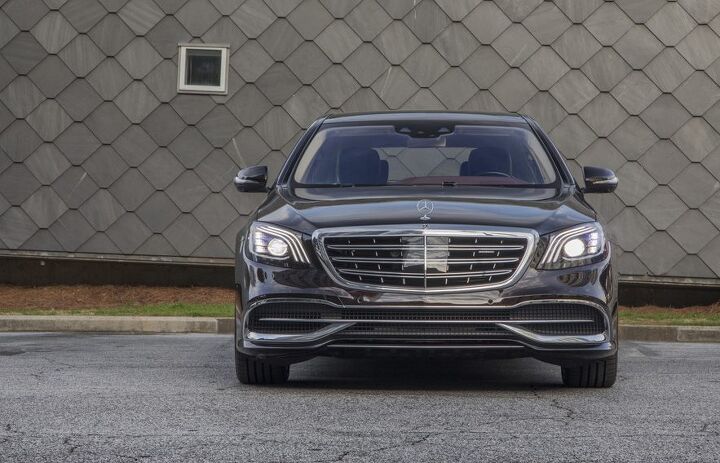


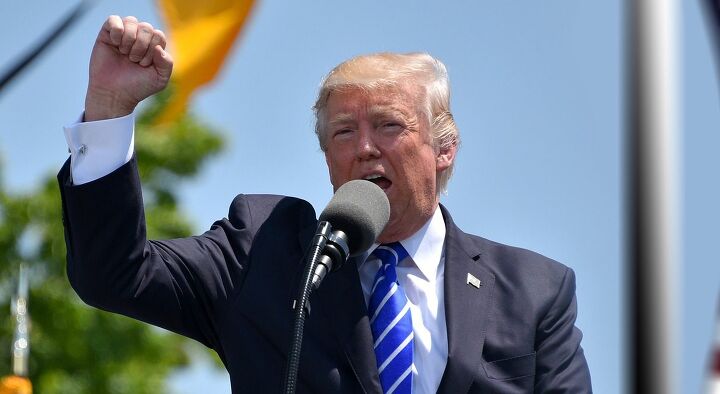

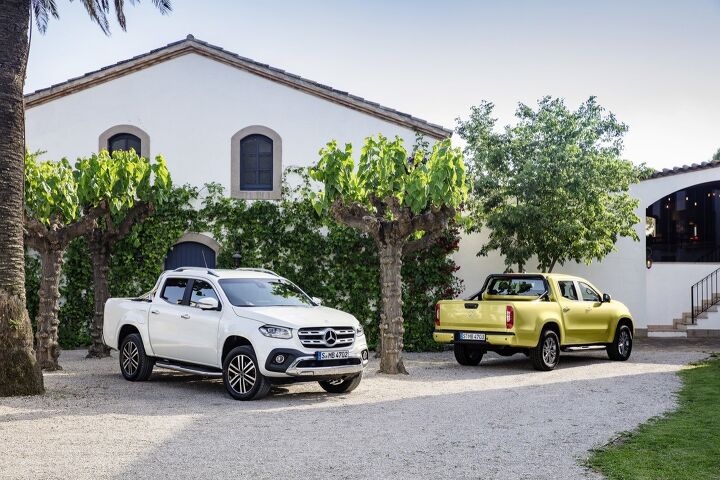
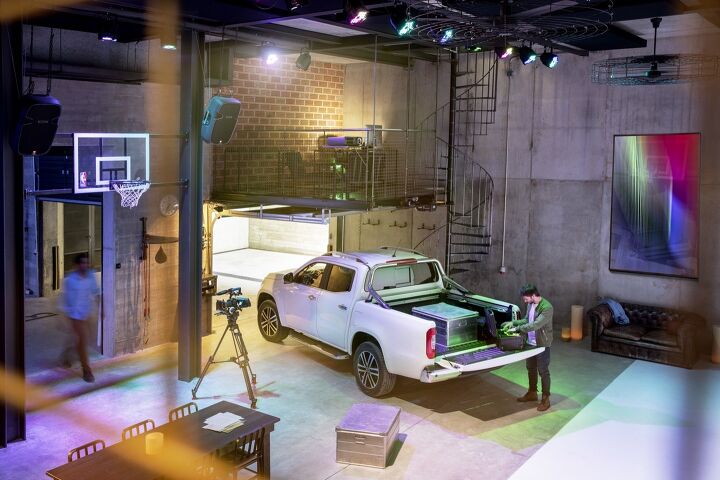
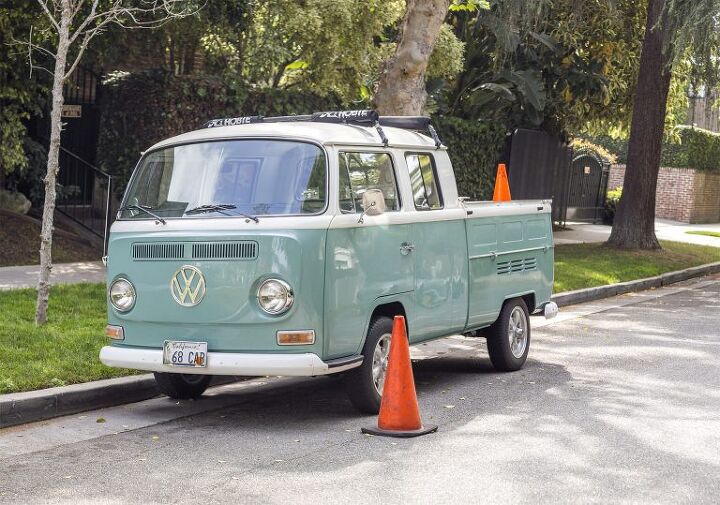


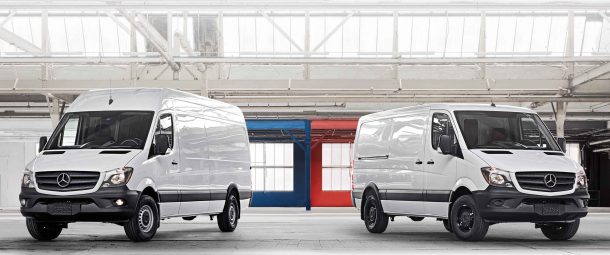
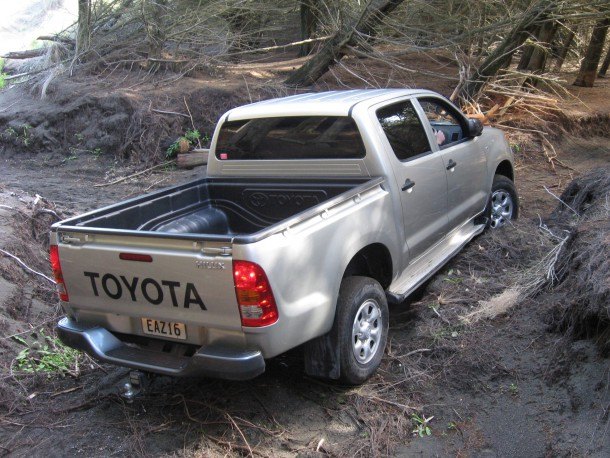
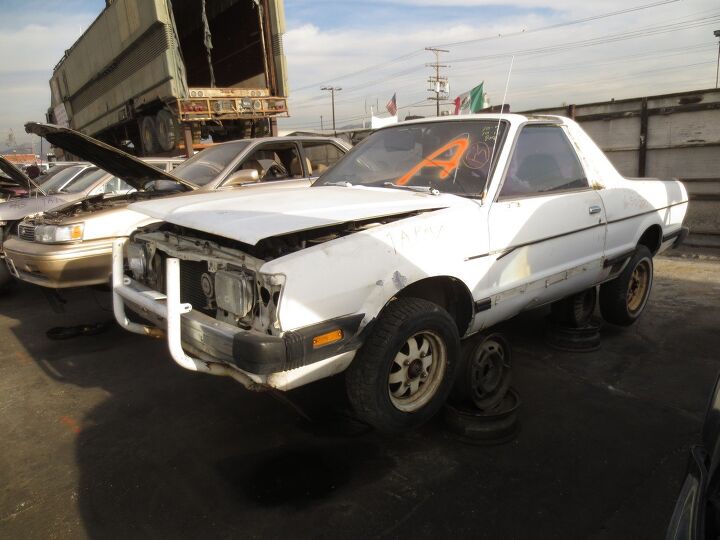
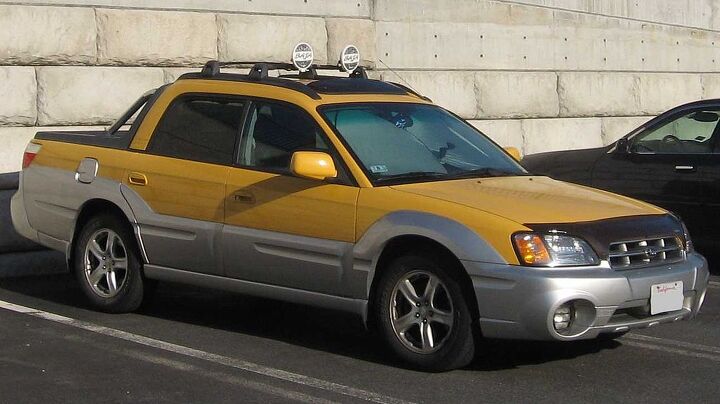












Recent Comments